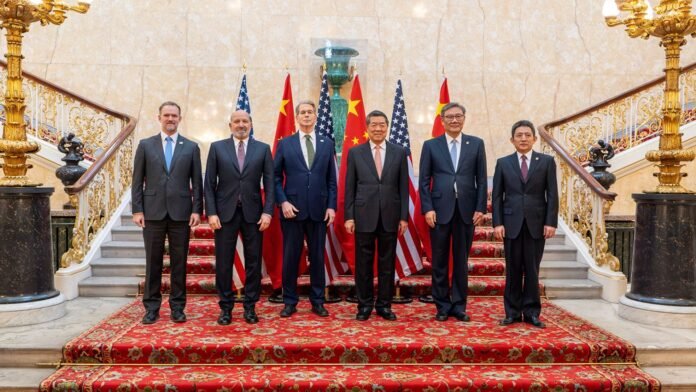US trade deals aim to limit China’s role in global supply chains as Washington seeks new agreements. Ahead of a July 9 deadline, US officials negotiate with key Asian and European partners. These talks focus on reducing Chinese content in products and curbing unfair trade practices.
India stands close to sealing a deal with the US. The main issue is the “rules of origin” requirement. The US demands 60% local value added to qualify as “Made in India.” India wants to lower that threshold to about 35%.
Meanwhile, Vietnam and other countries face pressure to adopt tiered tariffs. These tariffs increase on goods with high shares of Chinese components. This approach follows the pattern of the US trade agreement with Mexico and Canada.
US trade deals aim to limit China’s role amid growing concerns over supply chain dependency. However, many Asian economies rely heavily on China’s value added in their production. Experts warn countries like Vietnam, Cambodia, and Taiwan face significant exposure to this risk.
China, the largest trade partner for many Asian countries, warns of consequences if its interests are harmed. The Chinese Ministry of Commerce said it opposes deals that reduce tariffs at China’s expense. Foreign Minister Wang Yi plans to raise these concerns during talks in Europe.
The US’s 90-day pause on tariffs expires on July 9. If countries do not finalize trade deals with the US, they risk facing higher tariffs. In response, nations like Vietnam, Thailand, and South Korea have acted to prevent rerouting of goods to the US to avoid tariffs.
South Korea’s customs authority launched a crackdown on transshipments due to a rise in the practice. Taiwan also introduced new rules requiring US-bound exports to carry declarations confirming they were made on the island.
US trade deals aim to limit China’s role while strengthening America’s position in global trade. Washington pushes its partners to secure supply chains and reduce dependency on Chinese manufacturing. These efforts will shape the future of international trade and economic alliances.
For more business updates, visit DC Brief.


